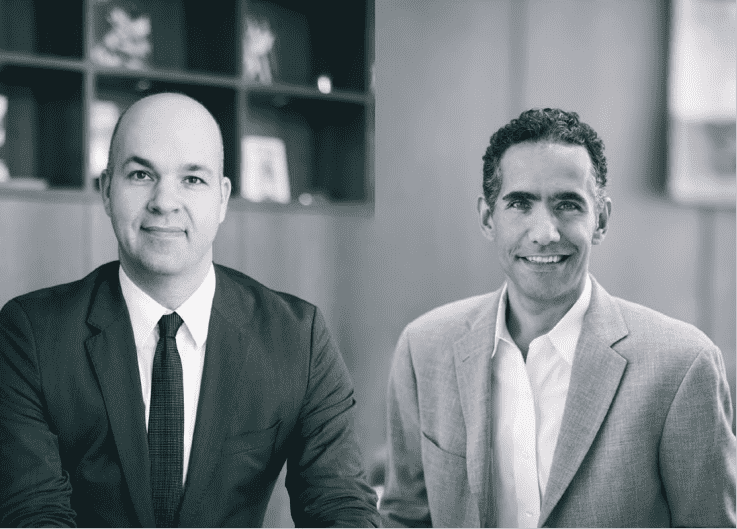
The INOMICS Questionnaire: Fratzscher vs Rossi-Hansberg
Read a summary or generate practice questions using the INOMICS AI tool
Esteemed economist, Princeton Professor, and friend of INOMICS, Esteban Rossi-Hansberg, generously took time out of his busy schedule to take part in the second INOMICS Handbook Questionnaire. Opposite him, in his customary role of quizmaster, was Professor Marcel Fratzscher, president of the DIW Berlin, and one of Germany’s leading voices in macroeconomics. Keeping with tradition, and as a nod to the heavyweight reputations of those involved, we dubbed the encounter ‘Fratzscher v Rossi-Hansberg’. What played out proved illuminating and often personal, the dialogue shedding light on the inner workings of the mystery that is the ‘economist’s mind’. For anyone even loosely connected to economics the following conversation will make an interesting read.
Marcel Fratzscher: What is your favorite place on earth?
Esteban Rossi-Hansberg: My office: The thrill of having my own space to work and concentrate has never gone away since I got my first office at Stanford’s economics department in 2002. Perhaps the reason can be traced back to my PhD. Back then, Chicago Ph.D. students did not get their own desk. I wrote my dissertation in the cafeteria of the Business School.
MF: Outside of economics, what occupation would you have if you could be absolutely anything?
ERH: I would be an artist or a chef. I love the creativity and the sense of accomplishment. If you think about it, it is not that different from research in economics. There is a technical part to our work, but the most creative (and best) part involves coming up with useful and beautiful abstractions.
MF: What is the virtue you appreciate the most?
ERH: Smarts are always useful, but in my experience not that scarce; at least in our profession and at the level required for most endeavors in economics. For me, the most important quality is perseverance and the ability to work hard continuously over many years.
MF: Your all-time favourite figure in economics?
ERH: I have three favorites, Friedman, Becker and Lucas. In my view, this trio has defined and expanded the reach and methodological rigor of the field more than any other.
MF: Your #1 economics blog?
ERH: I am not an avid reader of blogs, but I like VoxEu. It is a good, fast way to stay connected with research on a number of issues not directly related to the topics I study. I also like that it is based on real research, not just opinions
MF: Your ideal student?
ERH: Independent, smart and with a lot of grit.
MF: What should be done to address a gender bias in research in economics?
ERH: Focus on ideas and their quality, not on who produces them.
MF: What is the most misguided research agenda in economics?
ERH: Reduced-form empirical studies of the overall economic impact of climate change are misguided. How can we aggregate and extrapolate over hundreds of years without relying on theories of the economic mechanisms of adaptation?
MF: What is the most promising current research field or issue in economics?
ERH: Quantitative spatial economics: The theory and quantification on this topic have evolved dramatically, and the tools are ready to be applied to a large variety of extremely important substantive issues. There are very few topics in economics where space is not important!
MF: Where does economic research have the most influence on policy-making?
ERH: Probably monetary economics: Inflation is under control almost everywhere because research helped understand the mechanisms that generated it. The reaction of monetary policy during the great recession was very much driven by existing research as well.
MF: On what issues should policy listen more to economists?
ERH: Local policy and local investments: Governments and international institutions spend fortunes developing infrastructure and promoting reforms that affect local economies without doing proper, stateof-the-art, evaluations. Urban and regional economic policy is much more influenced by architects and urban developers than by economists. This should change. Economists have good tools to improve spatial and urban policy as well as resource allocation and infrastructure across space.
MF: What is your career advice to a young economics researcher?
ERH: Try to be methodologically broad, specialize only on topics, never on research techniques. Thematic specialization can lead to more depth in your knowledge, methodological specialization will only put limits on your capabilities as a researcher.
-
- Supplementary Course
- (Online)
- Posted 4 years ago
The History of Economic Thought
at University of Oxford in United Kingdom -
- Conference
- Posted 7 months ago
Call for Papers: International SOEP User Conference, July 4-5, 2024 in Berlin (Germany)
Between 4 Jul and 5 Jul in Berlin, Germany -
- Online Course
- (Online)
- Posted 4 years ago
Political Economy Certificate
at University of Massachusetts Amherst in United States










